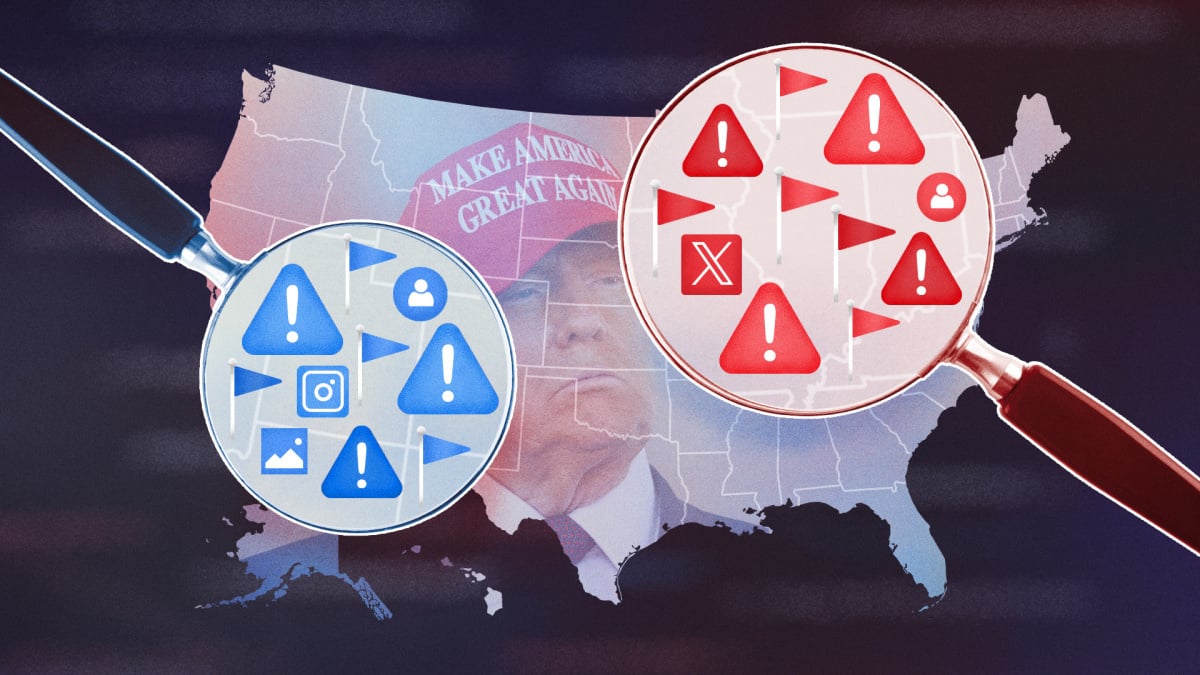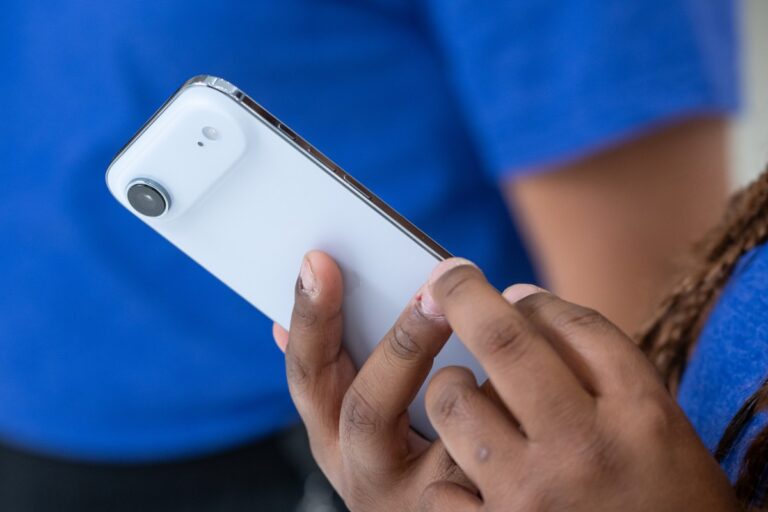How Donald Trump turned content moderation into a political minefield

Social media platforms have traditionally moderated their content material like a father or mother operating a home filled with youngsters: In case you reside underneath my roof, you comply with my guidelines. However as social media has change into more and more ubiquitous in our offline lives—and inherently extra political—the questions have change into: Who actually owns the roof, who makes these guidelines, and are our civil liberties in danger?
Beneath the administration of President-elect Donald Trump, this debate is prone to intensify till the politicization of content material moderation reaches a fever pitch.
How did we get right here?
The evolution of content material moderation began slowly, gaining pace because the affect of social media grew. It grew to become more and more clear that one thing needed to be performed when Fb, Twitter and YouTube performed key roles within the Arab Spring, a collection of protests within the Arab world in response to authorities corruption, within the 2010s. Fb was used as a device for organizing activists. , however it quickly grew to become controversial. YouTube debated whether or not to permit violent movies that serve instructional or documentary functions in response to activists in Egypt and Libya exposing police torture. Across the similar time, Twitter rolled out its “tweets stored in place” coverage.
In 2013, paperwork leaked from Fb’s moderation workplaces confirmed what, precisely, content material Fb was moderating. A 12 months later, the difficulty of on-line radicalization emerged on social media platforms. YouTube modified its coverage on permitting some violent movies after one exhibiting the beheading of journalist James Foley went viral. Twitter confronted backlash over rampant harassment for the discharge of the ladies led Ghostbusters film, which led to a change in content material moderation.
Behind the scenes, folks moderating the content material reported horrible working circumstances. After which got here 2016.
Misinformation and disinformation plagued the US presidential election between Hillary Clinton and Trump. Regardless of Fb launching a fact-checking program, the platforms struggled to cease the unfold of misinformation and election interference. In Myanmar, the Rohingya folks confronted main acts of ethnic violence fueled by Fb content material. In the meantime, Fb Stay grew to become a spot to broadcast suicides and shootings, together with right here the killing of Philando Castile. In 2018, TikTok launched in China, and in the identical 12 months, Twitter eliminated 70 million followers to curb the affect of political misinformation. Later that 12 months, YouTube printed its first transparency report and Fb shaped its personal Supervisory Board, permitting customers to enchantment its choices. In 2019, the terrorist assault in Christchurch, which was broadcast on Fb Stay, led to the Christchurch Name to Motion to Eradicate Terrorist and Violent Extremist Content material On-line, a bunch of countries “working collectively underneath the rubric of the Name to forestall terrorists and violent extremists from exploiting the Web.” Twitter allowed its customers to enchantment the elimination of content material later that 12 months, and ultimately, TikTok launched internationally.
All alongside, Trump was president. He signed an govt order to Stop Web Censorship, which focused Part 230 of the Communications Decency Act and aimed to curb what he noticed as bias in opposition to himself and different conservatives in the way in which platforms moderated content material. This got here after a lot of Trump’s tweets have been flagged by Twitter for deceptive info. He and others in his get together accused platforms like Twitter, Fb and Google of anti-conservative bias, resulting in hearings and congressional investigations into average content material — the form of affect that Katie Harbath, founder and CEO of the expertise coverage anchor Change and a former Fb govt, calls it “repute.”
The pandemic, January 6 and the height of politicization
Then, COVID-19 hit. Misinformation concerning the international epidemic unfold and extra folks died consequently. Guidelines to average on-line content material have been expanded internationally to counter the ever-growing phenomena of hate speech, election disinformation and well being misinformation. Fb launched insurance policies focusing on Holocaust denial content material, hate teams, organized militia teams and conspiracy theories, whereas Twitter launched its transparency middle.
However January 6, 2021 marked a turning level. Platforms like Fb, Twitter and YouTube banned or blocked then-President Trump’s accounts for inciting violence through the Capitol assault.
Mashable’s Velocity of Mild
“I might say Trump’s de-platforming was the last word pendulum swing,” Katie Harbath, founder and CEO of expertise coverage agency Anchor Change and a former Fb govt, informed Mashable. “Since then, over the subsequent 4 years, (platforms) have change into a little bit bit extra central by way of how a lot content material they’re prepared to take down. (And) they’re lots quieter about it. They are not exhibiting so clear about it as a result of they do not need the political goal on their backs.”
The place are we now?
Trump has since returned to all social media platforms. However the focus stays: Republicans declare that content material moderation silences conservative voices. As Berin Szóka, President of TechFreedom, informed Mashable: “Censorship is just moderating content material that somebody does not like.”
Elon Musk, a self-identified “free speech absolutist,” purchased Twitter in late 2022 and fueled this rhetoric. In January 2023, Home Republicans created a subcommittee on “Arming the Federal Authorities,” focusing on alleged censorship of conservative views. In one in every of their first official acts, they despatched letters to analysis teams demanding any documentation of correspondence between these teams and the federal authorities or social media firms for content material moderation. In the meantime, a lawsuit alleged that President Joe Biden’s administration exerts stress on the platforms to print. The misinformation of COVID-19, which the attorneys common argued was a type of suppression of speech.
Meta, in a notable shift, has decreased its give attention to political content material, notably on its Twitter competitor Threads, which Harbath says is “not essentially content material moderation, however a choice concerning the sorts of content material which are they presenting to folks or not.”
What’s going to we see in the way forward for content material moderation?
President-elect Trump has made content material moderation a marketing campaign problem. Brendan Carr, his decide to guide the FCC, has already echoed that agenda, calling for the dismantling of what he calls the “censorship cartel” and an effort to “restore the free speech rights of free for strange Individuals”.
“To do this, they should both bully or demand that tech firms preserve phrases they do not need to preserve,” Szóka mentioned. “Republicans Are at Battle on Content material Moderation.”
This “warfare” is prone to be fought on a number of totally different fronts: legislative and reputational, as Harbath says. Reputationally, we’ll see extra congressional hearings with tech executives, extra X posts from Trump, and extra questionable vitality about content material moderation usually. On the legislative facet, we’ve got an attention-grabbing highway forward.
As Szóka says, Carr is prone to do Trump’s bidding on eligibility standards for the Part 230 immunity, which “gives full immunity for the actions of the writer or speaker, no matter whether or not the impugned speech is illegal.” This implies Fb shouldn’t be accountable for misinformation, hate speech, or anything that lands on the platform it owns and runs with its cash.
“(Republicans will) use Part 230 as a result of by doing that, they will say, ‘We’re not asking for something,'” Szóka mentioned. “You are free, as a personal firm, to do what you need. However if you would like Part 230 immunity, you must be impartial, and we resolve what’s impartial.”
Harbath sees chaos forward, however questions whether or not Part 230 will truly change: “Possibly there will probably be a debate and a dialogue about it, however whether or not 230 modifications or not, I am skeptical.”
On the similar time, the rise of AI is reshaping the way forward for content material moderation. “The subsequent 4 years, the way in which persons are consuming info, what we’re speaking about right this moment will probably be utterly irrelevant and look utterly totally different,” Harbath mentioned. “AI is simply going to vary the way in which we take into consideration our information feeds, the incentives for folks, what they’re posting, what it appears to be like like, and it’ll open up new challenges for tech firms by way of the way it’s politicized.”
Ought to we be scared? Possibly not. In accordance with Harbath, it is nonetheless too early to foretell what content material moderation will appear to be underneath a second Trump time period. However we should preserve our eyes open. Content material moderation guidelines—and who will get to jot down them—are more and more formed by political energy, public notion, and technological evolution, setting the stage for battles over free speech, company accountability, and the position of presidency in regulating on-line areas.
“Total, it is too early to know precisely what it will appear to be,” Harbath mentioned.




